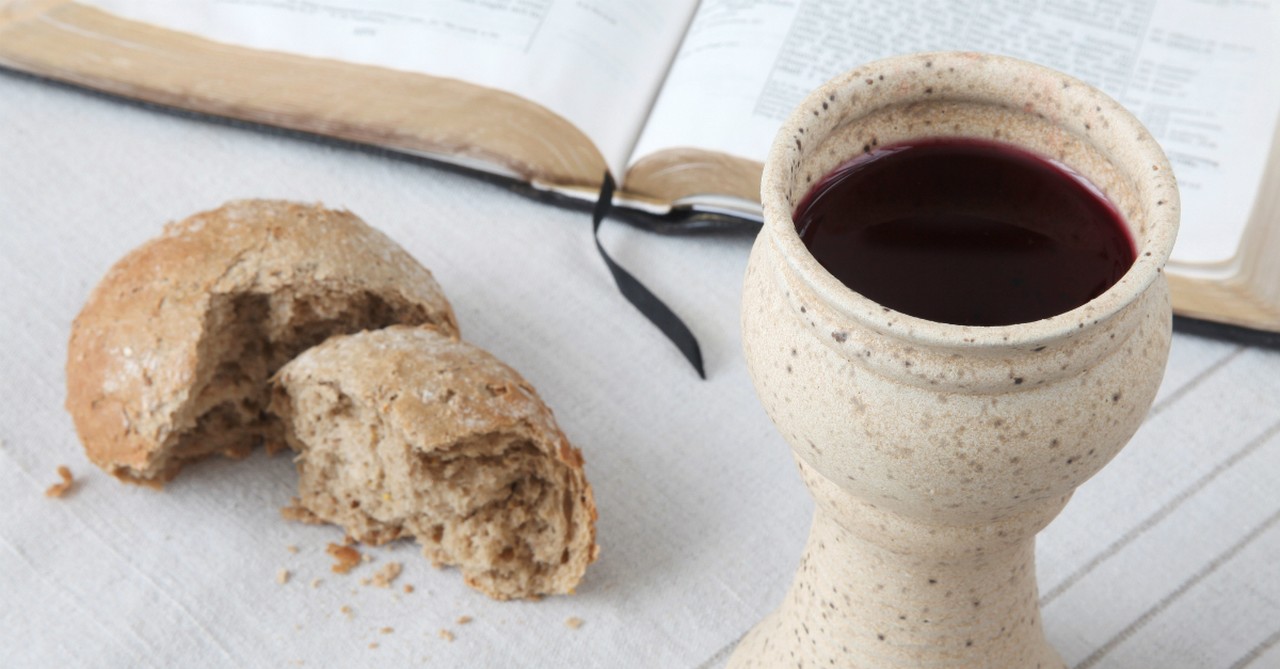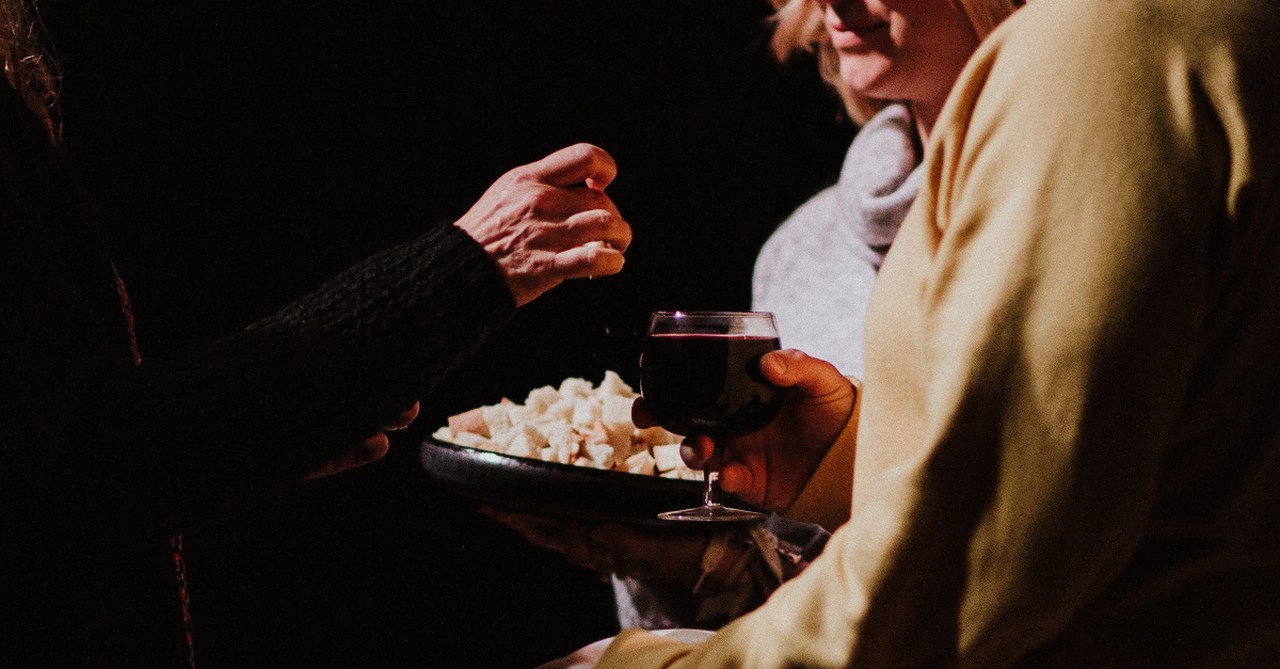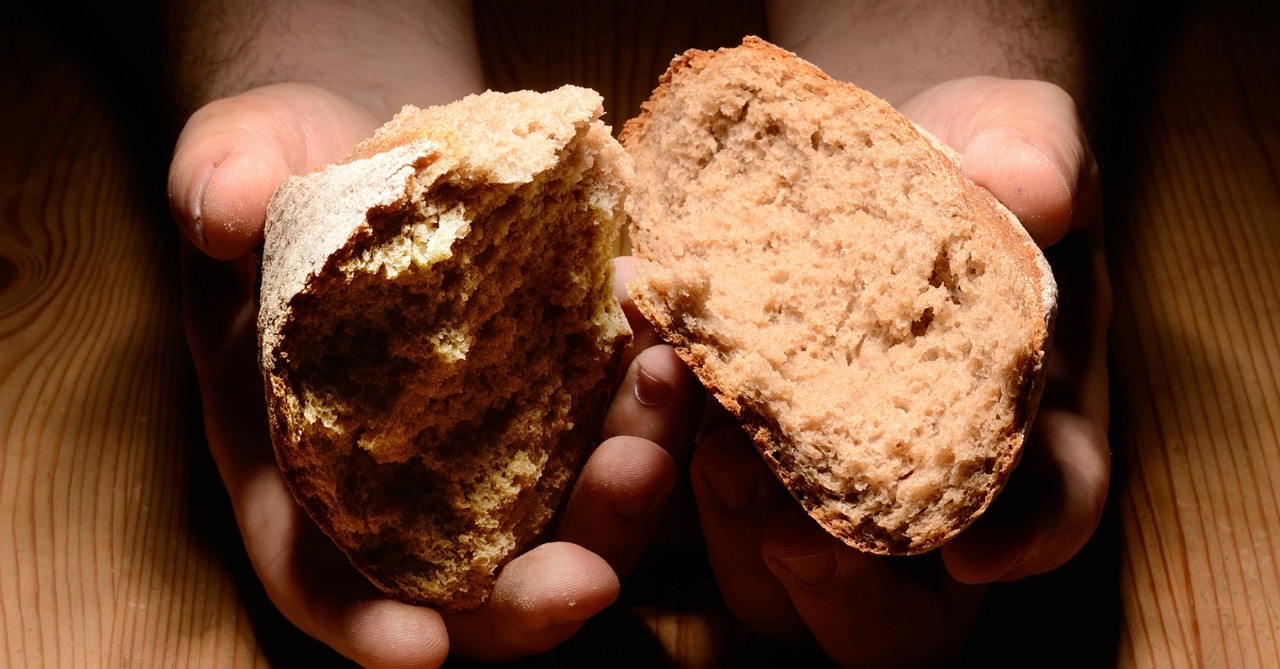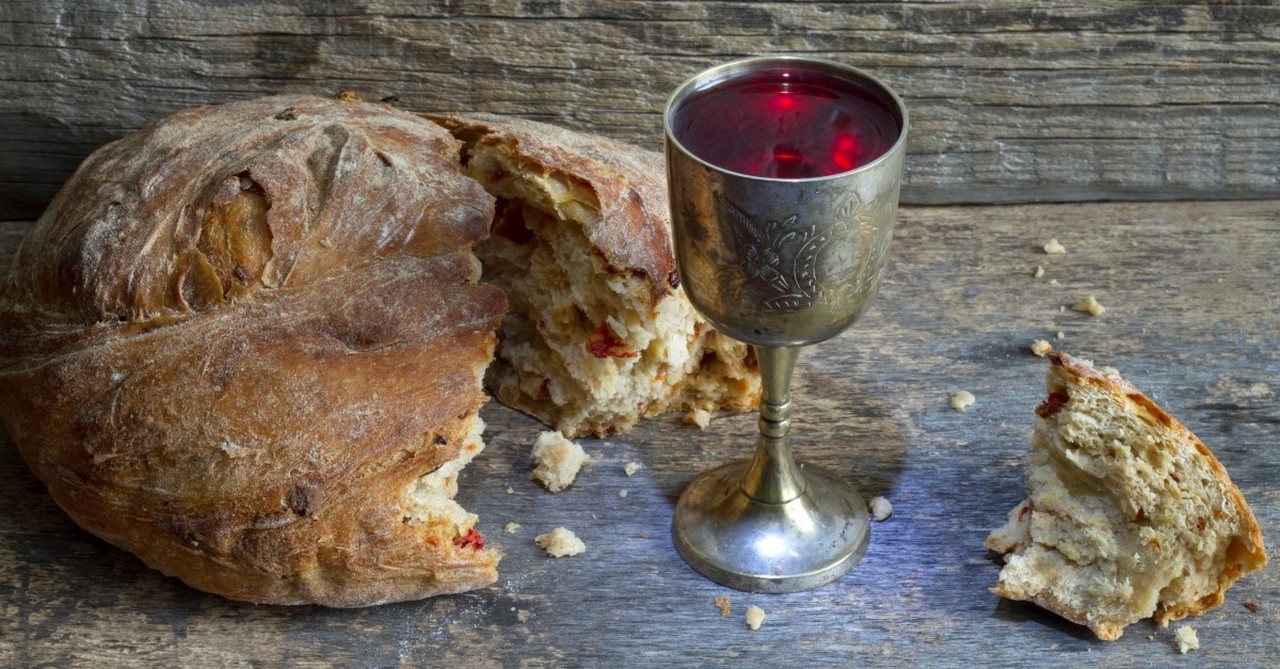The Power of Receiving Communion at Home during Quarantine

Hundreds of millions of Americans have been told to stay put, to combat coronavirus and flatten the curve.
Instead of gathering in the sanctuary of their home church, many find themselves at home.
Instead of getting dressed in their best, many are in sweatpants.
Instead of preparing to meet with God at church, many watch online.
Instead of gathering as the body of Christ, the church scatters worldwide as parking lots sit empty, the lights off and doors closed.
But what is the church? And what happens to its enduring and endearing sacraments and practices when we are not gathered in designated sanctuaries?
Photo Credit: ©GettyImages/IngridHS
Church Isn’t a Building

Church Isn’t a Building
SLIDE 1 OF 5
Is ‘church’ merely constructed of wood, brick, beautiful lighting and plush seating? When we think of the word, “church,” it is likely that the first thing we think of is a building. We have a mindset that the church is a place we go to. As we get our family dressed, fight through traffic, find a parking spot and get a good seat, it’s easy to lose sight of the fact we aren’t just going to church...
We are the church.
Have we forgotten we have the power of the church within us?
In the Bible, church is always a reference to people, not a place. The church is a body of believers that live out the Gospel in their words and actions. The church is at its best when people inside the building take Jesus’ message outside the building and serve those they meet. This includes the power of Communion, too.
You Can Receive Communion Anywhere
Right now millions of believers assume they cannot receive the power of Communion at home. However, before the coronavirus rocked our world, millions of believers were already taking Communion in hiding because of persecution.
Other brothers and sisters in Christ are homebound due to disabilities or the inability to drive or have transportation. They too, have been benefited from the power of Communion in their living rooms.
Friends, false assumptions are what the enemy wants.
He wants us to feel scattered, isolated, and alone. He wants us to think that we are vulnerable because we cannot gather at church. This couldn’t be further from the truth. We do not need a pastor or priest to serve Communion and we certainly don’t need to be in the physical church building either.
So what is Communion?
Photo Credit: ©GettyImages/Harbucks
The Blessing of Communion

The Blessing of Communion
SLIDE 2 OF 5
Communion, also known at The Lord’s Supper, was instituted by our Lord Jesus in the Upper Room on the night He was betrayed by one of His disciples, Judas. It happened as part of a festival celebration that began in the Old Testament period. Jewish people would have celebrated Passover in remembrance of how God leads his people out of slavery.
The first-ever Communion service occurred during a meal known as the Passover. The gospels of Matthew, Mark, and Luke record the first Communion.
Here is Luke’s account:
And when He had taken a cup and given thanks, He said, “Take this and share it among yourselves; for I say to you, I will not drink of the fruit of the vine from now on until the kingdom of God comes.” And when He had taken some bread and given thanks, He broke it and gave it to them, saying, “This is My body which is given for you; do this in remembrance of n Luke’s Gospel, he included a few more of Jesus’ words from that evening, “do this in remembrance of me.”
Those six words and the Apostle Paul’s reminder in 1 Corinthians 11:23-26, are the motivation for why we take Communion together as Jesus followers.
I can’t recall which one of her many mind-blowing books delighted with this amazing idea, but I do recall Jen Hatmaker suggesting that Communion is more than simply remembering. When Jesus said ‘do this...’ he was asking us to also do what he was doing. Not only to receive bread and wine to remember, but to break our bodies together, and offer ourselves to others—the way He does.
Photo Credit: ©Priscilla du Preez/Unsplash
Communion Transforms Us

Communion Transforms Us
SLIDE 3 OF 5
Our daily bread is not a symbol of mere earthly sustenance; it is true spiritual food, the real flesh and blood of our Savior, Jesus Christ. Communion is nourishment that transcends church walls and finds its power and its essence in the very workings of the Trinity itself.
When we receive Jesus during Communion and He takes up residence within us, it enables us to become more and more like Him. You and I become the body of Christ because it now houses Christ's soul after consecration from the bread and wine—Christ’s body and blood.
Paul wrote, “I live, no longer I, but Christ lives in me” (Galatians 2:20). We are to become who we receive.
The Power of Remembrance
Remember the things I have done for you in the past. For I am God, and there is no one like Me. From the very beginning, I told what would happen long before it took place. I keep My word and fulfill my promises. I know the end from the beginning. (Isaiah 46:9-10)
When we take Communion, it reminds us exactly who God is. He is the awesome God, the Alpha and Omega. He is sovereign. He is in control. Remembering is important to God. It means to rehearse, replay, recount, His ways and who He is to us. It helps us remember how He was been faithful throughout history but also more importantly, on a personal level. This remembrance is commanded. Participation at the Lord's Table is not an option. It isn't enough simply to say, “Remember!”
The elements of bread and wine are given to stir our minds and hearts. The physical action of eating and drinking is designed to remind us that we spiritually “ingest” the saving benefits Jesus’ life, death, and resurrection. It reminds us of our utter dependence on Jesus. Perhaps now more than any other time in history, we need this reminder in our homes.
Photo Credit: ©GettyImages/Thomas Soellner
Communion Celebrates the Enemy Has Been Defeated

Communion Celebrates the Enemy Has Been Defeated
SLIDE 4 OF 5
Have you been around unbelievers as they talk about death? Some are worried, anxious, and hopeless. Yet, we know the end game. We have peace that surpasses all understanding because we know what Jesus did on the cross.
As we partake, we joyfully proclaim the Lord’s death until he comes again.
In John 6:53-54, Jesus tells us that unless one eats his body and drink his blood, we have no life.
Most assuredly, I say to you, unless you eat the flesh of the Son of Man and drink His blood, you have no life in you.
He adds in John 6:54-56 that his body is food and his blood is a drink. Whoever eats his body and drinks his blood abides in him—and he will do so with us too.
Whoever eats my flesh and drinks my blood has eternal life, and I will raise him up at the last day. For my flesh is food indeed, and my blood is drink indeed. He who eats my flesh and drinks my blood abides in me, and I in him.
Jesus’ new life shows us the cycle of sin and death has finally been broken.
Photo credit: ©Getty Images/udra
Communion Provides Spiritual Power, Strength, and Endurance

Communion Provides Spiritual Power, Strength, and Endurance
SLIDE 5 OF 5
The food we put into our bodies is designed to nourish and strengthen the immune system. It is necessary for healthy muscles, strength to do work, and endurance for activities like running.
Communion is our spiritual nourishment. It will give us the ability to fend off temptations that harm or kill the soul. It will give us the ability to uphold the truth, perform endless house chores cheerfully, and give our families grace.
Communion reinforces our internal defense mechanisms, equipping the person with potent spiritual weapons that repel attacks from our enemies while keeping our hearts and minds on Christ.
A Simple Guide for Communion at Home
For those desiring to participate in Communion, here are the basic requirements:
-Have the Communion elements: bread/wafer (for Christ’s body) and wine/juice (for Christ’s blood).
-Search your heart for unconfessed sin (1 Corinthians 11:23-30).
-Confess your sin to God (1 John 1:9).
-If there is unresolved conflict in your life, seek reconciliation (Matthew 5:23).
-Reflect on all Jesus did and went through to pay the penalty for your sin (1 Corinthians 11:23-30).
-Read Matthew 26:26-28 or 1 Corinthians 11:23-30.
-Reflect with worship music and prayer. Let the Holy Spirit lead.
-Partake of the Communion bread/wafer and wine/juice.
-Continue in prayer as the Holy Spirit leads and give thanks for the body and blood of the Lord that was shed for you (1 Thessalonians 5:18).
Photo Credit: ©GettyImages/szefei

Originally published April 03, 2020.






